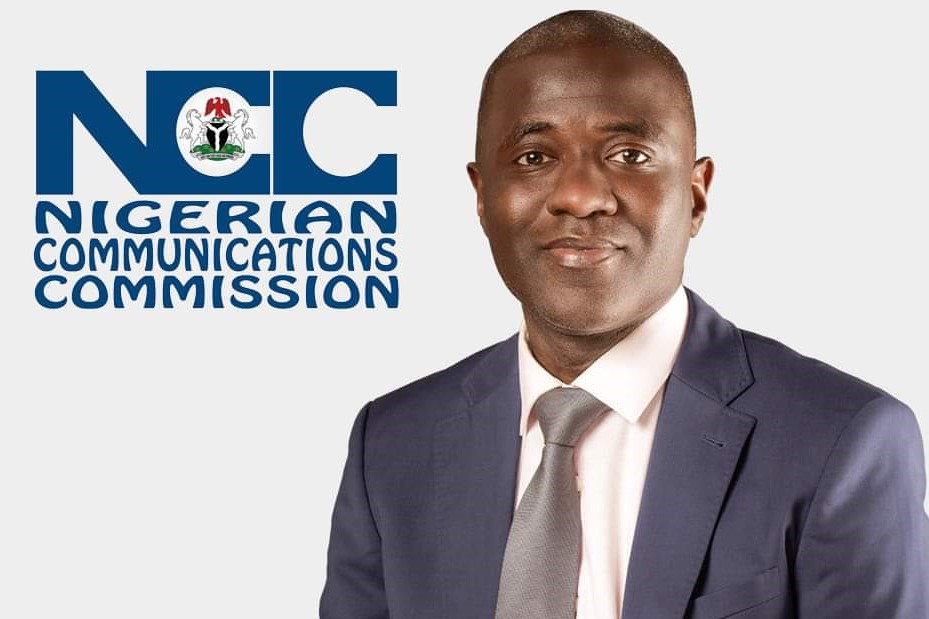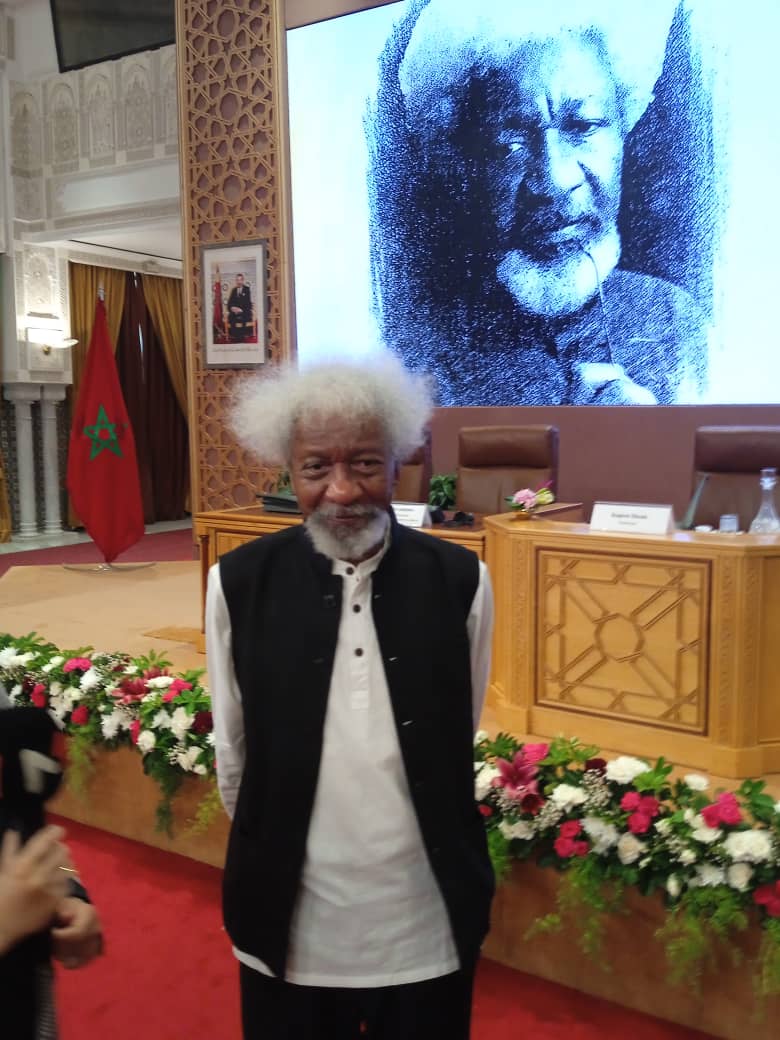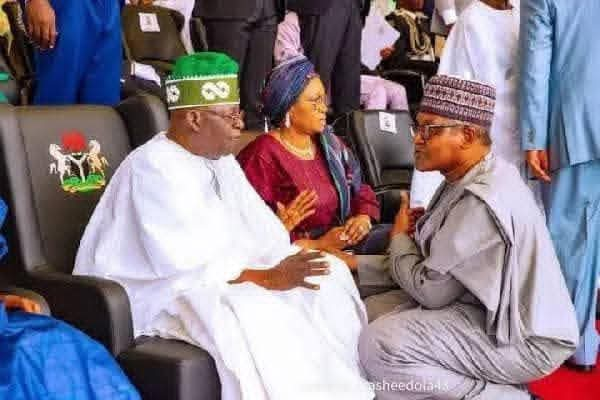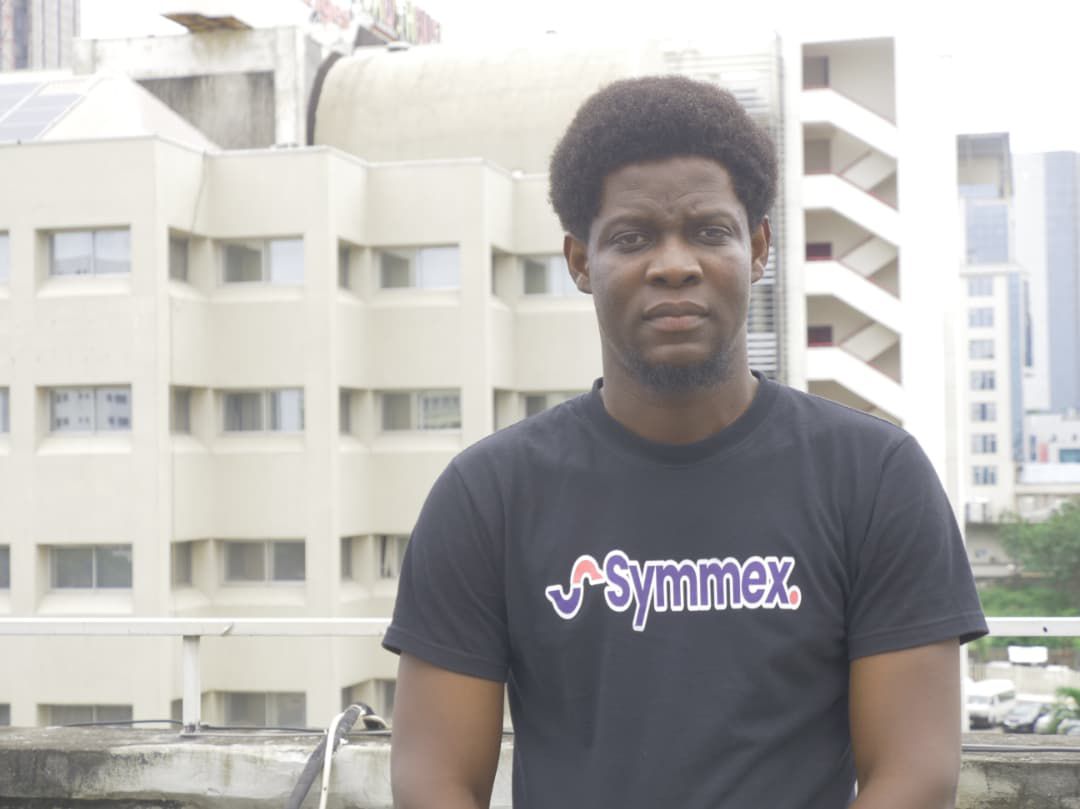“I don’t know any other way to live but to wake up every day armed with my convictions, not yielding them to the threat of danger and to the power and force of people who might despise me.” – Professor Wole Soyinka
Here we are in Rabat, headquarters of Académie Royale du Maroc, at the “Africa celebrates Prof Wole Soyinka” roundtable organised by the Academy, in collaboration with the Pan African Writers Association (PAWA), to honour Professor Wole Soyinka, the first African to be awarded the Nobel Prize for Literature, on the occasion of his 90th Birthday. Described by one of the speakers at the event as “the Genius from Abeokuta,” Wole Soyinka, poet, playwright, novelist, essayist, and satirist, is undoubtedly, one of the greatest Africans ever. “An athlete of thought,” as described by Professor Eugène Ebodé, administrator of the Chair of African Literatures and Arts of the Academy of the Kingdom of Morocco, Soyinka, in the words of Professor Abdeljalil Lahjohmri, permanent secretary of the Academy, is “one of the brightest minds of our generation (and) the most prominent contributor to thinking about issues of humanity and the African continent… and an exceptional literary figure who hails from an exceptional geography.”
It is fascinating that this event has been organised by the Academy of the Kingdom of Morocco, founded in 1977 in furtherance of scholarship, thought, and the development and promotion of scientific research, particularly in humanities, culture and arts, and whose renown rests on the standing of its prestigious membership that is limited to only a few across a handful of countries, with no Nigerian on the list, has rolled out the carpet in such a grand scale to honour this great Nigerian, even one who, on account of his exceptional trail of accomplishments, has long become a citizen of the world.
Here we are – Dr Newton Jibunoh (adventurer, writer, art collector, environmentalist and Professor Soyinka’s friend of over 50 years); Dr Wale Okediran (secretary-general, PAWA); Awam Amkpa, professor of drama at New York University, Abu Dhabi and director of the Biopic, The Man Died, who was Prof’s student at Ife and currently his colleague at NYU; Oladipo Akanbi (president, Association of Nigerian Authors); Jahman Anikulapo (artiste, culture advocate, curator and communicator); Jolayemi Olaofe (Broadcaster and a Layer); Ugoma Ebila (entrepreneur and cultural curator); Chinwe Odili (structural engineer and visual storyteller), and myself. We are here as Professor Wole Soyinka’s guests from Nigeria, and witnesses to history, as he received the emblem of the Académie Royale du Maroc. It was a moment of honour for the highly decorated and distinguished Nigeria, described by the Academy as “a researcher and investor in culture and literature, a defender throughout his decades of experience of freedom, an opponent of racism and apartheid, and a creative link between the past, the present and the future, in addition to defending creative writing and creators at the continental level.” It was a moment of glory for Nigeria, which brought immense pride to us as Nigerians, with all good eyes on us.
As absurd as it might sound, we have even had some questioning Wole Soyinka’s credentials as a writer. Well, there is no point dignifying the fabu about writers boycotting the Nobel Prize in 1986, as if it was the Olympics, with a response. For those who might genuinely want to know what those who matter think of Wole Soyinka’s writing, here is the statement by the Swedish Academy in 1986: “Soyinka has been characterized as one of the finest poetical playwrights that have written in English…Linguistically too Soyinka stands out as excellent. He possesses a prolific store of words and expressions which he exploits to the full in witty dialogue, in satire and grotesquery, in quiet poetry and essays of sparkling vitality. Wole Soyinka’s writing is full of life and urgency. For all its complexity it is at the same time energetically coherent.”
The challenge for some, though, is that they assume Wole Soyinka’s stature to be solely built around his prowess as a writer. But that is not quite the case. Wole Soyinka is not great just because he is a great writer, or because he is the first African to have won the Nobel Prize. His greatness preceded the Nobel and has long transcended it. He was already a great Nigerian before the Nobel and would have undoubtedly remained one, even if the Academy had not awarded him the prize. His body of work, outside of literature, robustly speaks to his greatness in more ways than one.
Indeed, while some become great on the strength of their accomplishment as writers, others will be considered great, even without consideration of their accomplishments as writers. Wole Soyinka is in that rarefied category of those who qualify as greats with or without taking his record as a writer into consideration. We do injustice to ourselves, and whoever else we choose to compare him with, as there is no basis for such duplicitous and reductionist comparisons that some make between Wole Soyinka and other writers, as every writer has his style and strengths. As Professor Lars Gyllensten of the Swedish Academy reminds us, Wole Soyinka stands out not just for his “genuine and impressive creativity as an artist, a master of language, (but a) commitment as a dramatist and writer of poetry and prose to problems of general and deep significance for man, modern or ancient.”
It is heartwarming to see that Vision of The Child (VoTC), a project he started in 2012, is still on and has evolved into a strong platform for education, creative, and artistic expression, along with the Wole Soyinka International Cultural Exchange Program (WSICE), which is now in its 15th edition. Both continue to forge ahead with the mission of nurturing cultural understanding and appreciation among the young ones. One of the highlights of the birthday celebration was Professor Soyinka hosting winners of the annual Essay Competition in his Autonomous Republic of Ijegba, A.R.I. Residence, as he always does.
There is no doubt about his soft spot for the younger generations. When the organisers of the event in Morocco shared their plans with him, he cautioned them against making the event about him, as he would rather not sit around to hear himself being spoken about. He advised them, instead, to make it a platform for “the young poets from Morocco” to be heard, even volunteering to sit and read poems with them.
For me, it has always been about the heart of the man, his thoughtfulness and presence of mind at all times, even with the constant pressure on him and demand on his time. It is his willingness to volunteer his shoulders for those behind, and different noble causes, time and again, while being unwilling to take credit for it. The honour done him in Morocco, he took it as one for the writing profession, dedicating it to colleagues who have passed on. That is Wole Soyinka.
EniOgun is an enigma. Who can accurately read his mind? I wonder till this moment what was on his mind in deciding on his guests for the event in Morocco. Who knows, others might have an explanation for the choice by Prof to have them as guests on the trip to Morocco; I do not have one. I am still in shock, pleasantly surprised at the honour of his invitation. I keep playing back the telephone conversation with him. It is not every day that the telephone rings and on the other side of it is a distinguished Nobel laureate with that unmistakable voice of his, “This is Wole Soyinka!” Thank you for being you, Prof. Please accept 90 Gbosas, as we toast to strength, good health and sound mind for you. Happy Birthday, Prof.
Simbo Olorunfemi works for Hoofbeatdotcom, a Nigerian communications consultancy and publisher of Africa Enterprise. Email: Editor@enterpriseafrica.ng





